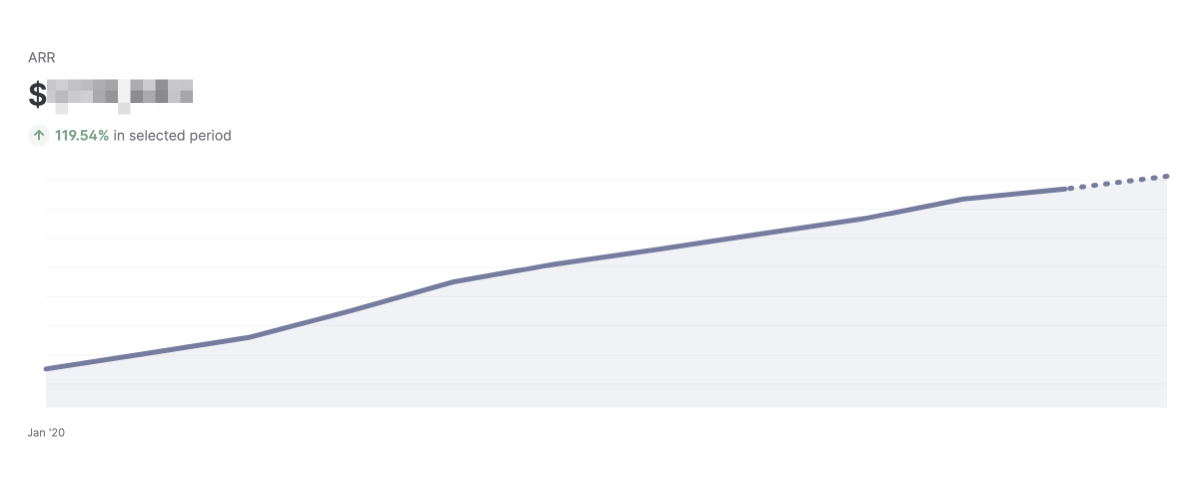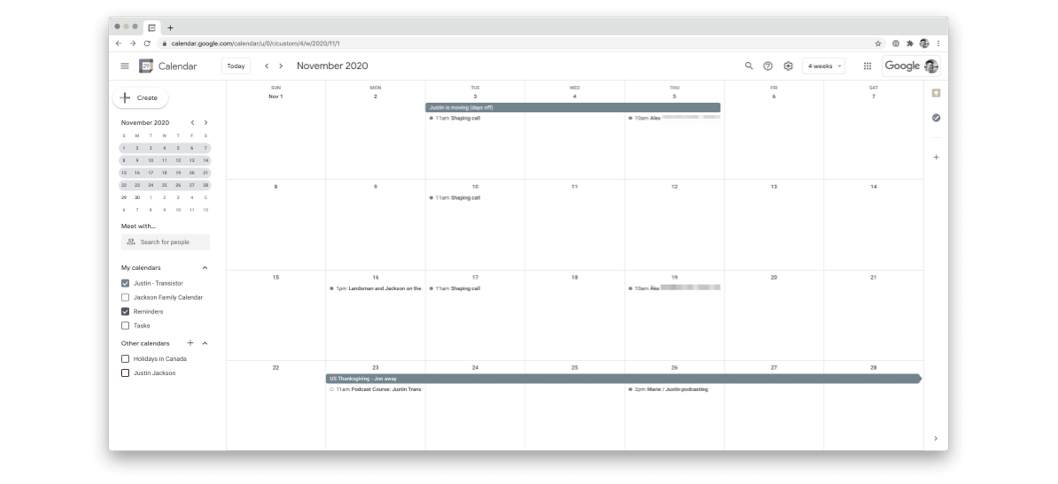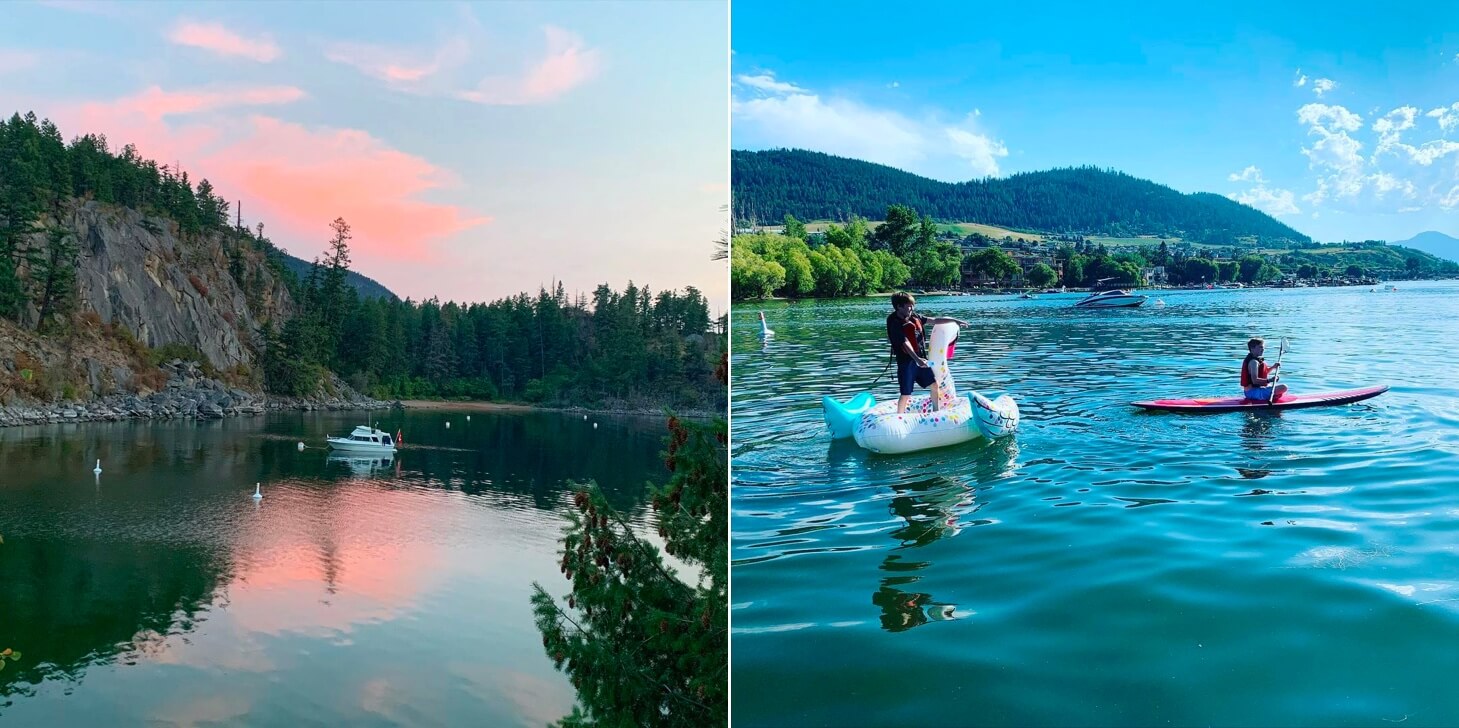2020 year in review
For those following my story: 2020 was a breakout year for me. After years of trying, I finally feel like I have a life with margin and a business that can sustain it.
I've been building to this moment for a long time. In many ways, it feels like I've been pushing a heavy rock uphill for decades.
But, 2020 (of all years!) was the year I got to push the rock downhill.
Key insights from 2020
- Good businesses have margin. Yes, profit margin. But also margin for your time, emotional and physical health, relationships, sanity, and integrity.
- Business is like surfing. Surfing is mostly about being in the water, paddling, and waiting for the right wave. The same is true for entrepreneurs.
- Ideas matter. People say "execution is everything," but I disagree.
- Main street businesses need leverage. That leverage will come from networking themselves together.
- Basic needs come first. Our society needs to do a better job of caring for people and providing them with the fundamentals to thrive.
What happened in 2020
The bad stuff
Coronavirus ravaged every country in the world. More systemic racial injustice was exposed. Many people lost their jobs, and small businesses suffered. Our society became strained socially and politically. And, let's not forget, climate change is still a pressing issue!
I hope that in 2021, we can vaccinate most of the world's population, and start to mend the divisions and inequality we have in our society. There's lots of work to do.
The good stuff: Transistor.fm hits its stride.
In 2019, Jon (my co-founder) and I had started paying ourselves a regular paycheck. Transistor essentially replaced our old jobs.
But, a business shouldn't just replace your old income. Starting a business has serious opportunity costs, as Josh Kaufman explains here:
Let’s say you decide to quit your $50,000/year job and start a business. Starting the business will certainly have costs of its own, but it will also cost you the $50,000 you would have made had you stayed at your job.
Every time we start something new, we're making a bet.We're risking our time, money, and energy. There are opportunity costs for every idea we commit to. If you spend 5 years building something that doesn't work, you've lost 5 years of investing in your career, family, etc.
In previous years, my businesses made enough money for us to live on, but nothing more. My rationalization was, "My lifestyle is way better, so who cares about my bank balance?"
But when I got depressed in 2017, it nearly destroyed me financially. Money provides security. Money provides margin.You want both: money + lifestyle.(Don't sacrifice either for the other!)
Eventually, your business should provide you with a significant return on investment. You need to be compensated for all the "years in the desert:"
- Ideas that didn't work out
- Times where you didn't get paid enough
- Money, time, and resources you invested
In 2020, Jon and I were fortunate to be able to do just that.
For me personally, it's meant I've been able to start saving for retirement again. I've re-built most of my savings. I'm regularly contributing to an investment account. I still have a lot of catching up to do, but it feels great to have the margin to invest in myself again.
When the initial Covid-19 lockdown happened in March, many people had the time to start that podcast they'd been dreaming about. As a result, there was a rush on microphones (Amazon sold out), remote recording software (I've heard Squadcast 10x'd revenue), and, yes, podcast hosting and analytics.
But, despite having record-breaking months in April and May, our growth chart is still gradual and steady:
I still have anxiety that one day I'll wake up, and this will all disappear. But overall, I feel more secure than ever.
Jon and I are incredibly thankful to all podcasters who use Transistor, get value from it, and share it with their friends.
What else made me happy?
Continuing to do less. After years of burning the candle at both ends, scheduling every block in my calendar, and running multiple projects simultaneously, it feels good just to do less. I've made a concerted effort to have very little on my calendar. Most months, it looks like this:
For now, having all this whitespace feels good for my soul.
Moving to a new house. One of the most significant books I've read is Christopher Alexander's "A Timeless Way of Building." His central point is that some buildings and rooms just "feel" better. He thinks there are specific attributes (patterns) that lead to better homes. My wife and I started looking in the summer of 2019 but really accelerated our search once Covid hit. It feels good to be in a home that feels good.
Walking. I found, especially during the pandemic, that my daily walk gave me consistent joy. I almost always have a destination (the coffee shop, my studio downtown, the lookout point), and it's usually when I listen to podcasts. Our species has been walking for millions of years; every time I go out, it feels like I'm tapping into the rhythm of humanity.
My family. One thing you realize in a lockdown: it's nice to be a part of a family. We've been able to share so many moments of joy this past year, even though the pandemic has restricted us. For my wife and me, spending more time with all four kids this year has been incredible.
The beach. I've always loved the beach. This year, I bought a couple of used paddleboards, and it really increased my enjoyment of the water. I feel lucky to have two gorgeous lakes (Kalamalka and Okanagan) so close. We also camped on the Shuswap Lake this summer and really enjoyed it.
The mountains. Again, I'm spoiled to live here. Silver Star mountain is a 25-minute drive from my house. In the summer, we've been downhill mountain biking. I'm way too timid to ride any of the big features and jumps, but just being there, riding, is life-giving. I feel the same thing in the winter when we ski and snowboard. Just being out on the mountain, you get swallowed by nature and filled with awe.
Podcasts. I would keep recording podcasts with people, even if folks weren't listening. There's nothing better for connecting with people, discussing ideas, and clarifying thoughts. I also got a ton of benefit from listening to podcasts by other bootstrappers.In the absence of conferences and meetups, hearing other people share vulnerably helped me feel connected.
Plans for 2021
What I want to do
- Pass on my good fortune. Some of my happiest moments this year came when I contributed my time, energy, and money to people who needed help.
- I really missed not meeting up with Jon (my co-founder) in 2020. Fingers crossed that we get to hang out in person in 2021.
- Plan a summer vacation. I'd love to find a lakefront cabin and stay there for a few weeks.
- Find a new therapist (my last therapist is moving, so I can't see her anymore).
- Re-connect with my local community. Coronavirus has sucked for local friendships and meetups. If the vaccine gets widely distributed in BC, I'm hoping we can start hanging out again.
- I hope I can see my extended family in 2021!
- Start a new podcast (something with a limited run: 5-10 episodes).
- Improve Transistor's marketing site: refactor the existing code, add testimonials, write case studies, and increase the number of people finding us on the web.
What I'm going to keep doing
- Abstaining from alcohol. (For the last few years, I've only had a few drinks, and it feels great).
- Saving money, investing, and re-building retirement funds.
- Participating in the MegaMaker community.
- Researching and acting on climate change.
- Practicing my front-end dev skills.
What I don't want to do
- Even if air travel opens up again, I'm not eager to do a bunch of flying. Not getting on planes this year has been really nice.
Happy new year!
Regardless of how your 2020 went, I hope your 2021 is better.
Cheers,
Justin Jackson
@mijustin
I write an annual review every year. You can read 2019, 2018, 2017, 2016, 2015, 2014, 2013 here.



